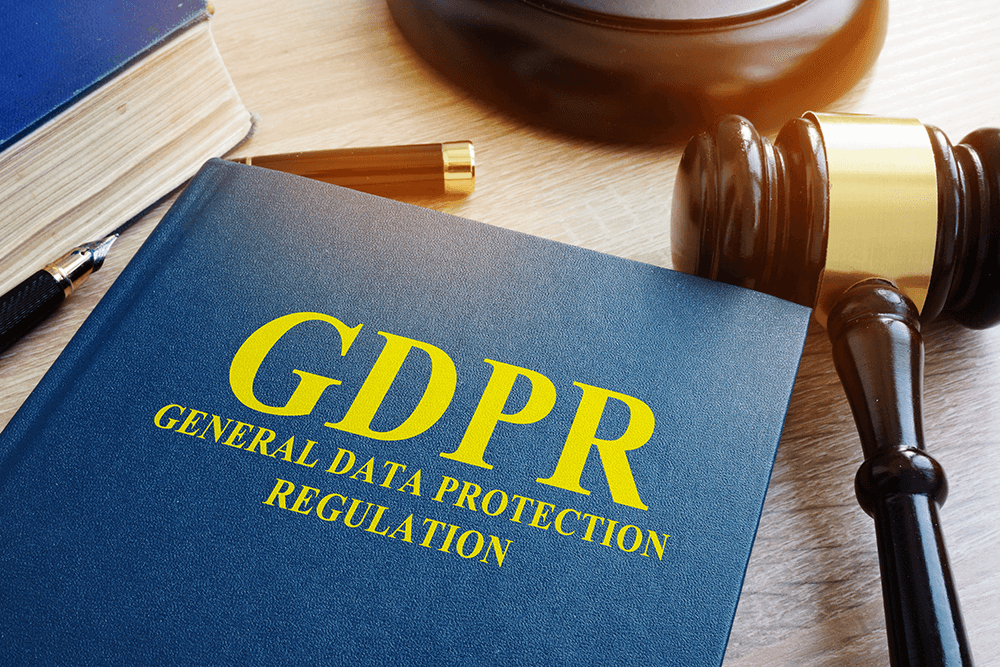Here Are 8 Things Every Business Needs To Do Now To Get GDPR Ready
2 July 2021
May 25th is just around the corner, which means your business needs to be ready to comply with the General Data Protection Regulation (GDPR). This regulation was approved by the EU Parliament in April 2016 and will begin to be enforced from May 25, 2018 and matters to any company anywhere in the world that stores or processes data of people who live in the European Union. Companies who aren’t in compliance will face hefty fines – up to $24million (20m Euros) or 4% of annual global turnover, whichever is higher. The intent of this legislation is to protect the data privacy for EU citizens and create consistent data privacy laws across Europe. You’re ahead of the game if you’re already complying with the Data Protection Act (DPA), the predecessor to the GDPR. Here’s what every business needs to know about the new elements of GDPR.

Review the GDPR and assess its implications for your company
Every company should familiarize themselves with the elements of the GDPR and make note of the changes that might have the biggest impact on your organization. Since the Information Commissioner’s Office (ICO) is working closely with trade associations and representatives of various industries, these entities will become an important resource for companies in each industry to help navigate the GDPR changes that are critical to them.
Highlights of Key Changes
Every organization should assign responsibility to someone on their team to read the provisions of the GDPR to become familiar with the requirements and how they pertain to your specific circumstances. However, here are a few key changes:
- Regardless of where your company is located and processes data, you are still required to comply with the regulation.
- Penalties for non-compliance apply to controllers and processors and a breach of the regulation can cost a maximum fine of 4% of annual turnover or up to 20 million pounds, whichever is greater.
- There are new strict parameters for getting consent to use data that require an intelligible and easily accessed form that uses clear and easy-to-understand language. Withdrawing consent must be equally easy.
- Breach notification needs to be done within 72 hours of becoming aware of the breach.
- The right to be forgotten allows for individuals to request their personal data be erased, stop dissemination of the data and halt third parties from processing the data.
- The GDPR allows the individual to request and receive their personal data and transmit it to another data controller.
- Although the privacy of design provision has existed for years, the GDPR makes it a legal requirement that data protection must be considered when designing a system and not an addition or afterthought.
- Some companies will be required to appoint a data protection officer (DPO).
What should you do to get ready for the GDPR?
1. Assess what needs to be done in your organization
Review the requirements of GDPR to understand the implications for your organization and be sure to update decision-makers about what changes need to be made. For some organizations, changes will need to be made that impact several departments so the sooner you get everyone on board the better.
2. Information audit
Audit what personal data you collect and store, where it came from and who you share it with. One of the requirements of the GDPR is to record your processing activities and have effective policies and procedures in place.
3. Update your privacy notices
Most likely you will need to update how you communicate to your customers how you will use any personal data you collect to be compliant with GDPR. In addition, your privacy notice needs to explain the lawful basis for processing personal data.
4. Data portability
Since many of the individual rights outlined in GDPR already exist with the Data Protection Act, if you are already following those requirements there shouldn’t be a significant amount of effort necessary to comply with the new regulations. However, this does offer a good time for you to review your current procedures to be sure all is covered. Also, the data portability component is new, so consider how your systems would handle an individual’s request to get their data in a commonly used and machine-readable form.
5. Access requests
Verify that you can accommodate the new mandates about dealing with data access requests in 30 days.
6. Consent
Review these detailed instructions on consent provided by the Information Commissioner’s Office. This covers how you seek, record and manage consent. Consent is not assumed from silence or inactivity, it must be verifiable.
7. Children’s data
The GDPR outlines special protections for children’s data, so consider if your systems are accurately verifying ages and getting parental or guardian consent for children before processing data.
8. Data breaches
How would you handle a data breach in your organization? Now is the time to consider your current process and compare what you do with the requirements of the GDPR.
There has been some confusion and overwhelm by company leaders around these new regulations. The sooner you get your arms around the specific details that will impact your organization the better you will be in May.
Related Articles
The UK’s Bold AI Plan: A Blueprint For Leading The Future Of Technology
By now, “smart” versions exist of just about every home appliance, gadget and gizmos we can think of. However, manufacturers continue[...]
Will AI Solve The World’s Inequality Problem – Or Make It Worse?
We are standing on the cusp of a new technological revolution. AI is increasingly permeating every aspect of our lives, with intelligent machines transforming the way we live and work.[...]
How You Become Irreplaceable In The Age Of AI
In a world where artificial intelligence is rapidly advancing, many of us are left wondering: Will AI take our jobs?[...]
Why Apple Intelligence Sets A New Gold Standard For AI Privacy
In the rapidly evolving world of artificial intelligence, privacy concerns have become a hot-button issue.[...]
Can Your Device Run Apple Intelligence? What You Need To Know
Apple's announcement of Apple Intelligence has sent waves of excitement through the tech world.[...]
10 Amazing Things You Can Do With Apple Intelligence On Your IPhone
Apple Intelligence is poised to revolutionize the iPhone experience, offering a suite of AI-powered tools that promise to make your digital life easier, more productive, and more creative.[...]
Sign up to Stay in Touch!
Bernard Marr is a world-renowned futurist, influencer and thought leader in the fields of business and technology, with a passion for using technology for the good of humanity.
He is a best-selling author of over 20 books, writes a regular column for Forbes and advises and coaches many of the world’s best-known organisations.
He has a combined following of 4 million people across his social media channels and newsletters and was ranked by LinkedIn as one of the top 5 business influencers in the world.
Bernard’s latest book is ‘Generative AI in Practice’.










Social Media